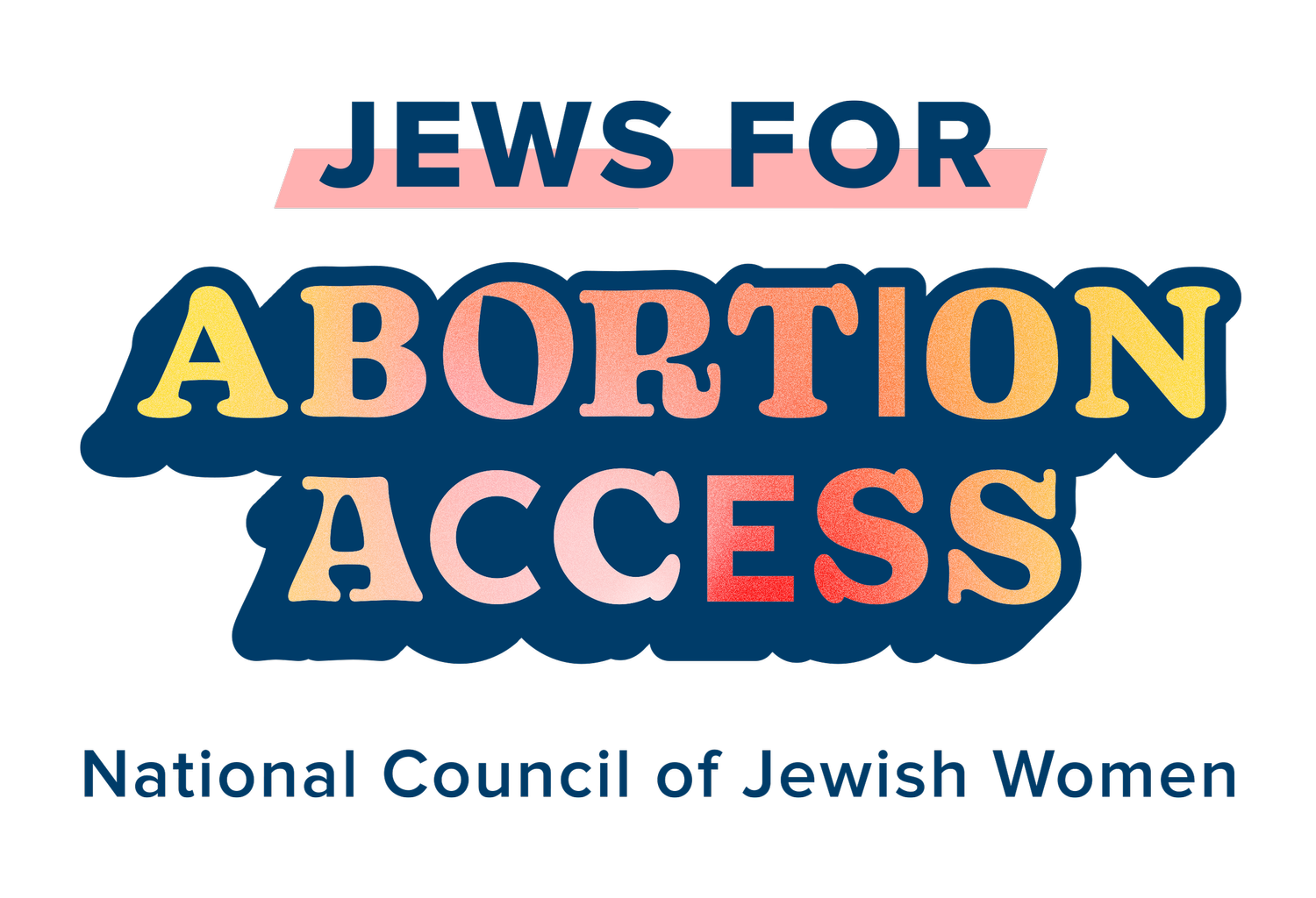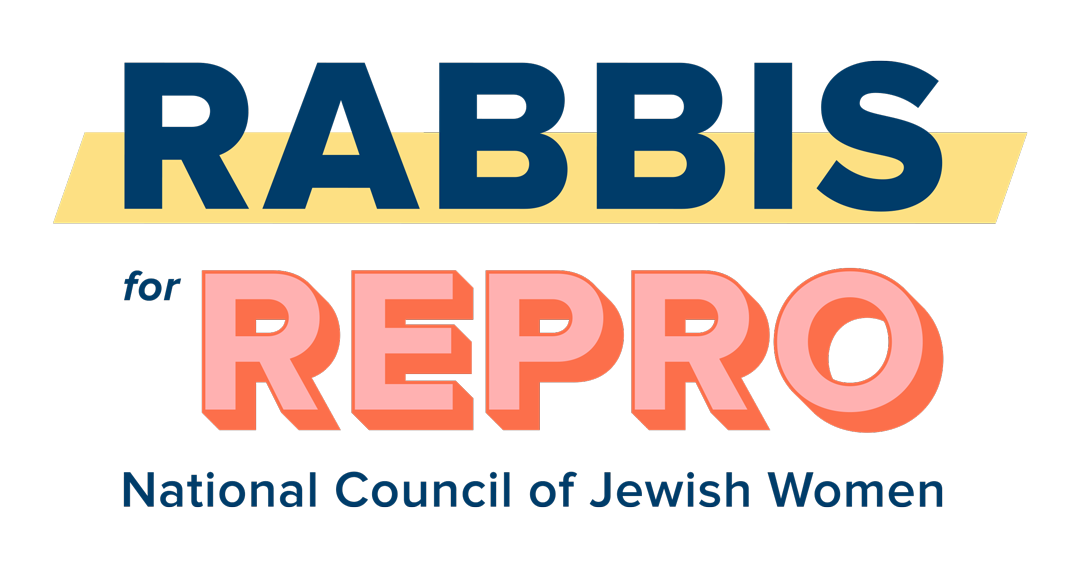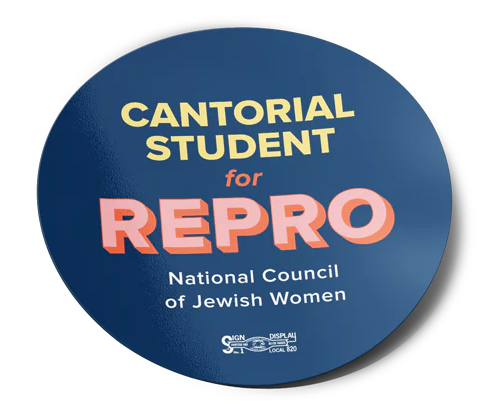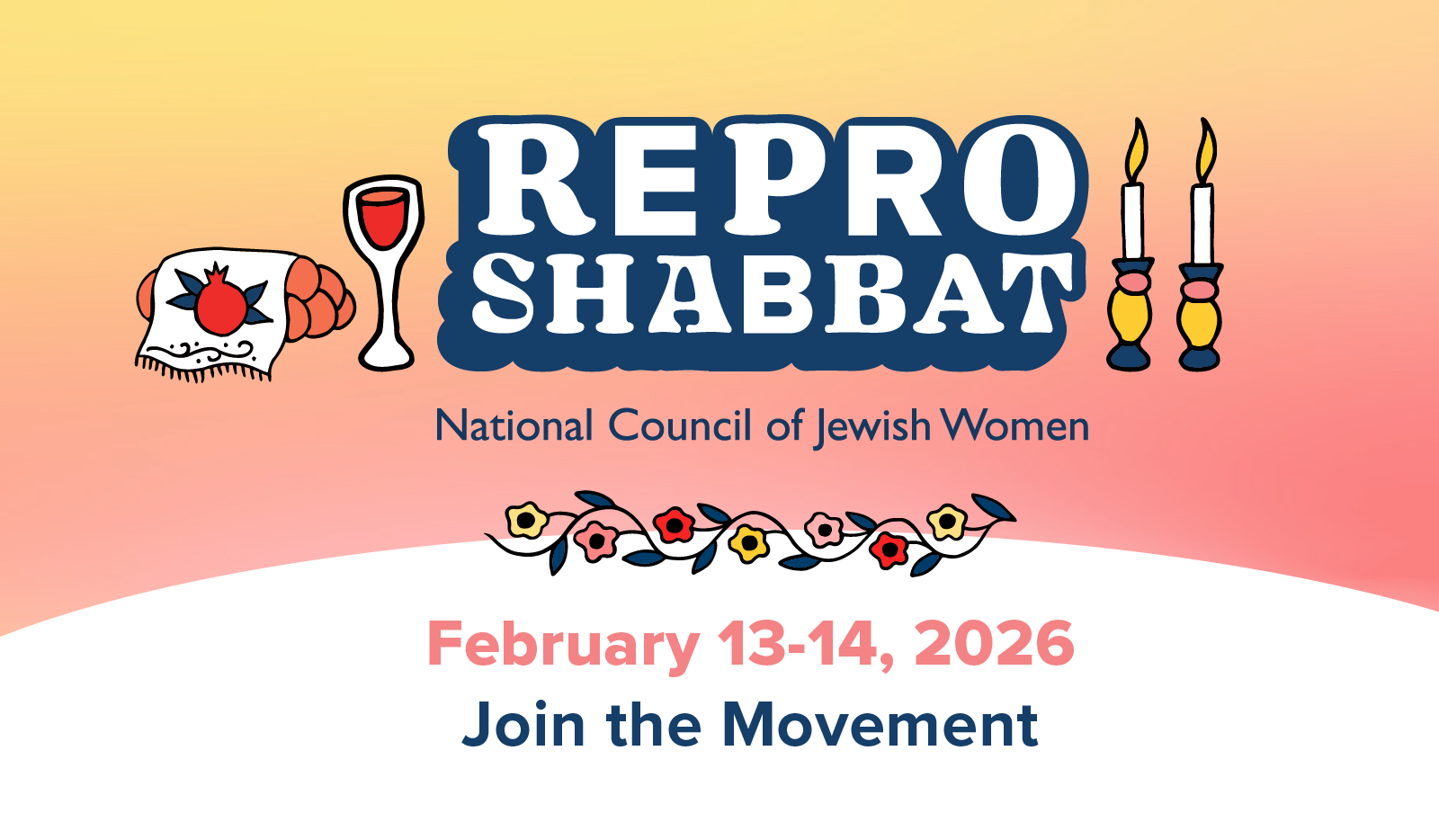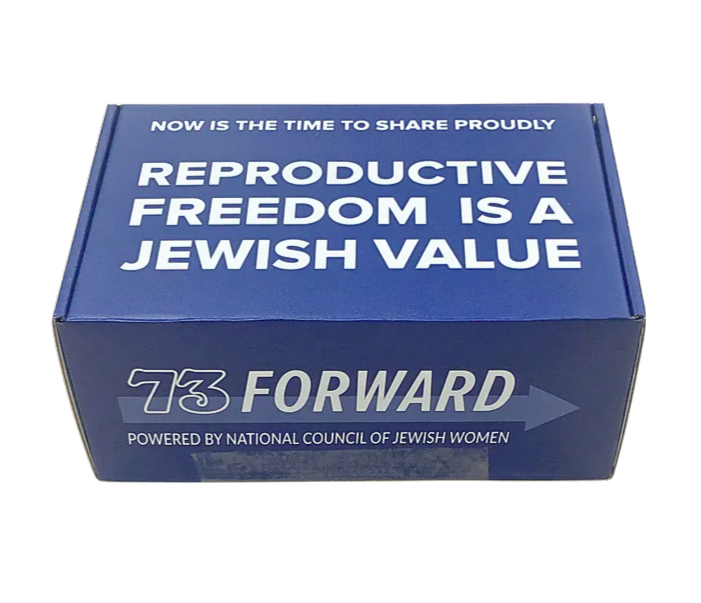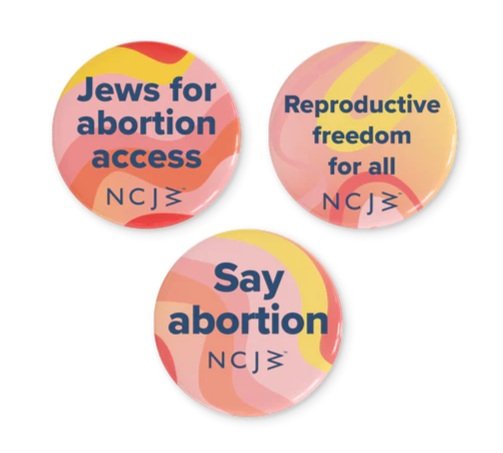Now, more than ever, we need Jewish moral leadership to speak out for reproductive health, rights, and justice.
Reproductive freedom is a Jewish value.
Our tradition not only permits the termination of pregnancy, but even requires it when the life of the pregnant person is at stake.
One in four people who can get pregnant will terminate a pregnancy by the age of 45, and those who want children need access to reproductive care during miscarriage or ectopic pregnancies; and abortion bans may also curtail legal access and agency during IVF.
Forced birth takes lives: Maternal death rates are 62% higher in states that ban or restrict abortion, and babies born in banned states were 30% more likely to die in their first month of life. Black and American Indian/Alaska Native women are about three times as likely to die in pregnancy, childbirth, or right after giving birth than white women–even though 84% of pregnancy-related deaths are preventable. Bans disproportionately impact BIPOC women and others, those struggling to make ends meet, young people, im/migrants, and trans men and some nonbinary people.
Our communities should be places where anyone who has, or may ever, need to end a pregnancy feels loved and welcomed. They should be places where people understand what our tradition teaches about these issues. And they should be places where we understand the importance of fighting for reproductive health, rights, and justice for everyone.
We must not remain idle while barriers to health care place any individual’s health, well-being, autonomy, or economic security at risk. Rabbis and other clergy can help lead the fight for reproductive health, rights, and justice by educating their communities.
Take the Pledge
Speak about reproductive rights in your rabbinic, cantorial, or other capacity as klei kodesh this year.
If you are a rabbinical or cantorial student, sign the pledge for emerging clergy:
FAQs
-
Rabbis and cantors hold space for communities, provide pastoral care, and are often a trusted resource for congregants. Given that one in four people who can become pregnant will have an abortion by age 45, clergy serve those who have had, are considering, or may ever consider having an abortion; are traumatized by the attacks on their bodily autonomy; and/or are interested in learning more about reproductive health, rights, and justice. Jewish religious leaders educate their communities and make themselves available for conversations that their congregants need to have.
This is an opportunity for Jewish clergy to:
• Show that your community is loving and welcoming to anyone who has terminated or may ever terminate a pregnancy;
• Teach about the ways in which our tradition considers the life of the pregnant person paramount and permits the termination of pregnancies; and
• Educate about the importance of reproductive health, rights, and justice for everyone.
-
Judaism not only permits abortion, but even requires it when life is at stake. (See Clergy Resources section for more information.) Pikuach nefesh and, more broadly, building a just society are ultimate Jewish concerns. We must not remain idle while barriers to health care place any individual’s health, well-being, autonomy, or economic security at risk.
Safety, justice, freedom, and lives are at stake.
• The US has the highest rate of maternal mortality and morbidity among industrialized countries, with African-Americans and American Indian/Alaska Natives three times more likely to die of pregnancy-related causes than white Americans.
• Those who lack access to reproductive health care — disproportionately low-income people, people of color, young people, immigrants, and LGBTQ individuals — are more likely to live in poverty and to remain in abusive relationships.
• Abortion is safe and safer when performed early. In contrast, unsafe abortions are a leading cause of death worldwide, and high rates of unsafe abortions are directly associated with laws restricting access to critical health care.
-
Reproductive health refers to the direct servicing of an individual’s reproductive needs. It includes access to affordable birth control; abortion access; reproductive medical care that is affirming to trans, intersex, non-binary, and gender nonconforming people; access to assisted reproductive services; and pregnancy and prenatal care.
Reproductive rights are the individual legal rights to reproductive health care services with a focus on keeping abortion legal, standardizing sex education, and increasing access to family planning services.
Reproductive justice brings a racial and economic justice framework to the work for reproductive freedom, recognizing and addressing disparities in social, economic, and political power and the subsequent impact on access to reproductive health care. SisterSong: Women of Color Reproductive Justice Collective defines reproductive justice as “the human right to maintain personal bodily autonomy, have children, not have children, and parent the children we have in safe and sustainable communities.” The work for reproductive justice was started and continues to be led by women of color.
-
NCJW has long recognized that many factors — including age, race, income, sexual orientation, gender identity, immigration status, and type of insurance — impact a person's access to abortion, contraception, and the full range of reproductive health care. We understand that all facets of a person’s life are interwoven; progress or setbacks in the realms of health, economic security, work-family balance, religious liberty, and so forth will impact other areas of life, ultimately affecting that person’s ability to achieve true autonomy and control over their body and reproductive life. The reproductive justice framework fully embraces this understanding, emphasizing how multiple systems of oppression intersect and influence the exercise of human rights in marginalized communities.
NCJW works as an ally to the reproductive justice movement in solidarity with those most impacted by reproductive oppression: people of color, low-income people, young people, immigrants, and LGBTQ individuals. We strive to mobilize the interfaith community and to elevate Jewish voices to ensure all can make their own moral and faith-informed decisions about their bodies, families, and futures.
-
As with any complex topic, the language we use when discussing reproductive health, rights, and justice issues matters. For instance, although many focus on women when talking about these issues, it is important to recognize that anyone capable of becoming pregnant — including many (but not all) women; many transgender men, nonbinary, intersex, and gender nonconforming people; and others in the LGBTQ community — need access to the full range of reproductive health care. One way to be more accurate and inclusive is to use gender-neutral language (i.e. “people,” “pregnant individuals,” or “patients” rather than “women”). You can find additional guidance on addressing false narratives, rhetoric, and complex topics related to reproductive health, rights, and justice on pages 24-29 of the Abortion and Jewish Values Toolkit).
-
Reproductive health care is under a sustained and coordinated attack. As people across the country are routinely denied basic health services and the national dialogue surrounding this pivotal issue has amplified, we need Jewish moral leaders to fight against attacks on bodily autonomy and to speak out on behalf of people of faith who support reproductive health, rights, and justice because of their religion, not in spite of it.
Join us to change the conversation about religion and reproductive rights, to educate our communities about Jewish values and reproductive rights, and to welcome those who have had, are considering, or may ever consider having an abortion.
Resources for Clergy
Jewish Study & Programming
Initiatives & Turnkey Events

Abortion is on the Ballot:
Join the Jewish Community
Election season is coming and abortion is on the ballot. The Jewish community is turning out in states with ballot measures to guarantee reproductive freedom.
Check out opportunities to get involved!
Additional resources, including buttons, posters, apparel, and a Reproductive Freedom Event Kit are available in our online store.
Stay Connected
Stay in the loop, RSVP for upcoming #JewsForAbortionAccess events, be among the first to hear about initiatives, and access social media graphics and other resources and downloads.
Support the Work
The Jewish Fund for Abortion Access is the Jewish communal response to the ever-complicated reproductive health care landscape.
